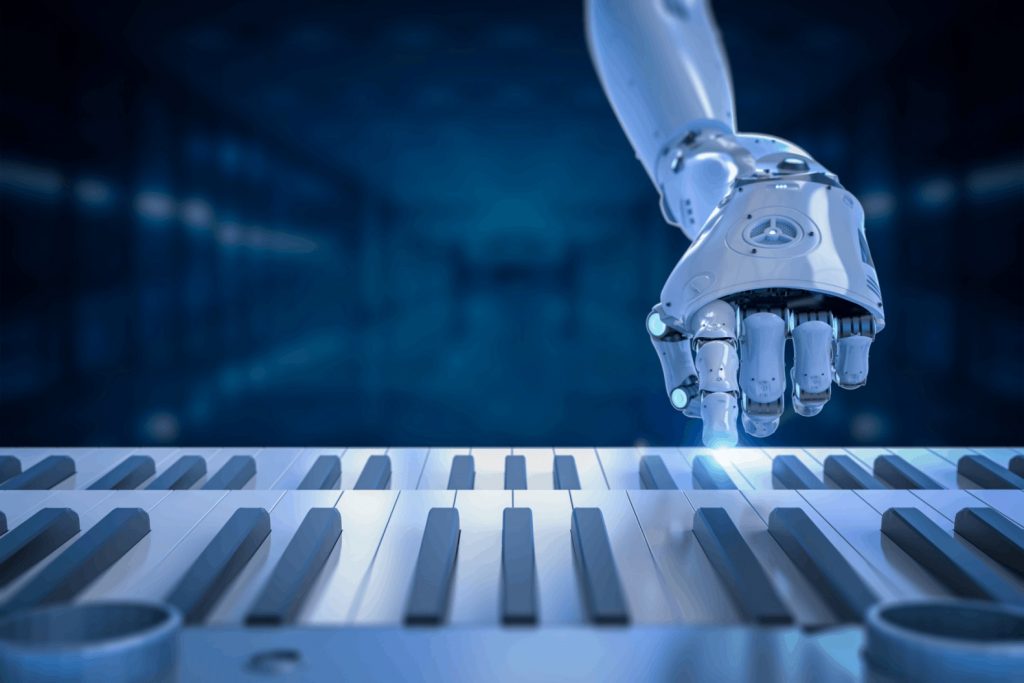
The world of music is on the cusp of a revolution, driven by artificial intelligence (AI). Generative AI platforms like Udio and Suno are promising to democratize music creation, allowing anyone to craft unique songs with the help of AI. But this innovation has sparked a fierce legal battle with the music industry, raising critical questions about copyright and the future of AI-powered music.
The Copyright Infringement Accusation: Music Labels Strike Back
The Recording Industry Association of America (RIAA), the trade group representing major music labels, has filed lawsuits against Udio and Suno. The central allegation? These AI music startups are infringing on
copyrights by training their generative models on copyrighted music from artists without permission. The
RIAA argues that this process essentially copies the essence of existing music, potentially leading to
derivative and unoriginal AI-generated compositions. The lawsuits seek compensation of up to $150,000 per allegedly infringed work, a hefty price tag that could cripple these young startups. More importantly, the lawsuits set a precedent for how AI companies can interact with copyrighted material.
Generative AI and the “Fair Use” Defense
Udio and Suno, along with other AI companies facing similar accusations, are defending themselves with the “fair use” doctrine. This legal principle allows limited use of copyrighted material for purposes such as commentary, criticism, parody, or news reporting. AI companies argue that their models don’t directly copy music but rather learn from it to create entirely new compositions. They claim this transformative process falls under fair use.
The Battleground for Precedent: A Coin Toss for the Future
The court’s decision in these cases will have a ripple effect across the entire AI landscape. Here are two
potential outcomes with vastly different implications:
Copyright Holders Prevail: If the courts side with the RIAA, AI companies may be forced to obtain licenses or pay copyright holders to use their music for training purposes. This could significantly increase the cost of developing and operating generative AI models, potentially hindering innovation in the field.
Generative AI Wins the Fair Use Argument: A court ruling in favor of fair use would be a major victory
for AI companies. It would establish a legal precedent allowing them to train their models on copyrighted material without explicit permission. This could accelerate the development of generative
AI across various creative fields, not just music.
The Google Books Precedent: A Glimpse into the Future?
The outcome might hinge on whether the courts perceive generative AI as sufficiently “transformative.” A similar case involving Google Books, which scanned millions of books to create a searchable digital library, offers a potential precedent. Publishers sued Google for copyright infringement, but the courts ultimately ruled in Google’s favor, finding that the copying had a “highly transformative purpose.”
The Google Books case suggests that courts might be receptive to the transformative argument if AI-generated music demonstrates sufficient originality and doesn’t simply mimic existing works. However, the line between inspiration and infringement remains blurry, and the courts will likely take a nuanced approach, considering the specific outputs of each AI model.
Beyond the Lawsuit: The Broader Impact on Generative AI Music
While the legal battle takes center stage, the potential impact of AI music extends far beyond the courtroom.
Here’s a look at some possible ramifications:
The Rise of Model-Specific Decisions: Courts may not issue a blanket ruling applicable to all generative
AI music platforms. Instead, they might analyze each case based on the specific algorithms and the
characteristics of the music each model generates. This could lead to a patchwork of legal precedents,
creating uncertainty for the industry.
AI Learns from the Case: Regardless of the court’s decision, AI companies are closely following this
lawsuit. The outcome will undoubtedly influence how they develop and train their models in the future. Companies might prioritize features that demonstrably transform existing music, making the “fair use” argument stronger.
News Nuggets: A Bite-Sized Look at the World of AI
Beyond the music industry battle, here’s a quick roundup of other noteworthy AI news:
OpenAI Delays Advanced Voice Mode for ChatGPT: OpenAI’s ambitious project to create an eerily realistic, real-time conversational experience for its chatbot platform, ChatGPT, has been delayed.
However, OpenAI hasn’t been idle. They acquired Multi, a remote collaboration startup, and released a macOS client for ChatGPT, expanding its user base.
Stability AI Secures Funding and New Leadership: Stability AI, the creator of the popular image-
generating model Stable Diffusion, was facing financial difficulties. However, a recent infusion of
funds from investors including tech giants like Google and ex-Google CEO Eric Schmidt has
provided a lifeline.
Miracle technologies is a comprehensive NYC based Managed IT Services for Business IT Infrastructures. Our platform is built upon years of unmatched experience at AT&T Labs Research and renowned Wall Street MSPs. We offers cloud support, data center support, C suite services, backbone servers support, security servers, 24/7 managed IT support and Business Continuity/Disaster Recovery.
Our team of IT Support Engineers have consistently overdelivered year after year. Our platform designs, consolidates, upgrades and maintains any IT infrastructure aspect of your business. Our qualified IT support engineers keep your cloud, data centers, vendors management, all backend servers, firewalls, routers, switches, emails, security, and end users devices optimized, while you focus on your core business.
Free IT Support Quotes/Sign Up
myteam@miracletechs.com
(646) 237-4472